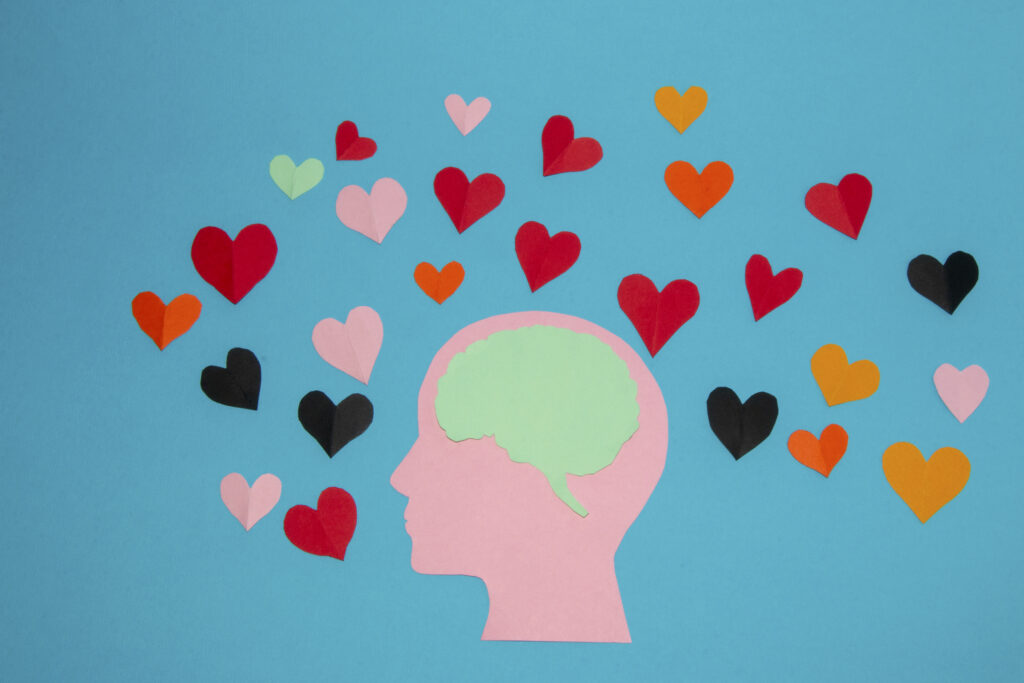It’s never too early or too late to start showing your brain some love and protection! As we celebrate Valentine’s Day, it’s essential to remember that love isn’t limited to romantic relationships. It also extends to the relationship you have with your own body, including your brain. This Valentine’s Day, why not show your brain some love and appreciation by prioritising its health and well-being? After all, a healthy brain is key to leading a fulfilling and vibrant life.
Your brain is involved in everything you do, and, it needs to be cared for and protected, like any other body part. Lifestyle and diet play pivotal roles in supporting your brain health so that you can thrive mentally, emotionally, and cognitively for years to come. So let’s dive in and discover how you can give your brain the love and care it deserves this Valentine’s Day and beyond.
1. Nutrition as nourishment
A balanced diet is fundamental to overall health, including brain function. Following a gut-healthy diet rich in fruits, vegetables, whole grains, lean proteins, and healthy fats can be immensely beneficial. Certain diets, like the Mediterranean Diet and Mediterranean-DASH (Dietary Approaches to Stop Hypertension) may reduce the risk of cognitive decline.1https://www.alz.org/help-support/brain_health/10_ways_to_love_your_brain Foods high in antioxidants, such as berries, leafy greens, and nuts, can help combat oxidative stress, which is linked to cognitive decline.
Omega-3 fatty acids found in fatty fish like salmon, walnuts, and flaxseeds are crucial for brain health. These fatty acids contribute to building and maintaining healthy brain cells, reducing inflammation, and supporting overall cognitive function.
2. Break a sweat
Physical activity isn’t solely beneficial for the body, it also supports brain health. Engaging in regular exercise promotes blood flow to the brain2https://www.alz.org/help-support/brain_health/10_ways_to_love_your_brain, stimulating the growth of new brain cells and fostering connections between them. It can enhance memory, cognitive function, and overall mental well-being. Activities like dancing, which combine physical movement with mental engagement, are particularly beneficial. The Centers for Disease Prevention and Control highlights that learning new dance moves can enhance your brain’s memory and processing speed.3https://www.healthline.com/health/mental-health/brain-exercises#dance So grab your dancing partner this Valentine’s Day, get yourself booked into a class or online tutorial, and dance your heart out!💃
3. Quality sleep
Sleep is vital for brain health and cognitive function. It is essential for learning, concentration, creating memories, clearing toxins, response times, problem-solving, creativity, and communication between nerve cells (neurons).4https://www.ninds.nih.gov/health-information/public-education/brain-basics/brain-basics-understanding-sleep#:~:text=Without%20sleep%20you%20can’t,neurons)%20communicate%20with%20each%20other.5https://www.healthline.com/health/why-do-we-sleep#brain-function Prioritise getting quality sleep by establishing a regular sleep schedule, creating a relaxing bedtime routine, and ensuring a comfortable sleep environment. Quality sleep is a cornerstone of overall health and can significantly impact brain health and function. For an added benefit, get cuddled up with your loved one tonight and enjoy the increased oxytocin (“the cuddle hormone”) levels. Oxytocin is also known as “the love drug” 😉
4. Manage stress
Chronic stress can negatively impact both brain and gut health. Finding effective stress management techniques, such as meditation, yoga, tai chi, or deep breathing exercises, can protect your brain from the damaging effects of stress.6https://www.healthline.com/health/mental-health/brain-exercises#try-a-new-route Or perhaps it’s time to take power in just doing nothing? Whatever self-care looks like for you, this is your reminder to do it ❤️ Slowing down and taking a breath can be challenging in today’s busy society, so if you need some help here, check out Calm the chaos: 9 tips for coping with stress and Adapting to stress with Ashwagandha.
Foods that are naturally high in polyphenols can also lower cortisol (the stress hormone). Eat plenty of the following foods whilst restricting sugar intake to keep your stress response controlled:
- Probiotic foods e.g. sauerkraut, kimchi
- Probiotic yoghurt drinks
- Prebiotic fibre
- Dark chocolate
- Bananas
- Green tea
- Black tea
Take a look at some of our favourite Gut-Brain friendly recipes for some inspiration!
5. Mental stimulation
Engaging in mentally stimulating activities like puzzles, learning new skills, building furniture, artistic hobbies, playing strategic games like bridge, solitaire or sudoku, or engaging in hobbies can help maintain cognitive function and support brain health.7https://www.alz.org/help-support/brain_health/10_ways_to_love_your_brain8https://www.healthline.com/health/mental-health/brain-exercises#play-cards There are lots of ways to challenge and activate your mind, so have fun with this one!
6. Daily Gut-Brain Health Smoothie
We recommend a daily Gut-Brain Health Smoothie for maintaining and improving gut and brain health. You can find our recipe here. Our Nutritional Therapists can also design a personalised Gut-Brain Health Smoothie for you, using the results of your Microbiome Test.
How long should you continue to drink a daily gut-brain health smoothie? That’s a bit like asking how long you need to continue to put fuel in your car! Carry on with your Gut-Brain Health Smoothie routine for as long as you want to continue to feel healthy, energetic and strong. You can read more about the science behind our gut health protocol here.
To dive deeper into all things brain health, check out How is your gut connected to your brain? and What kind of exercise is best for your gut and your brain?
Any questions? Contact one of our Nutritional Therapists via live chat, weekdays from 8 am to 8 pm.
References
- 1
- 2
- 3
- 4
- 5
- 6
- 7
- 8














